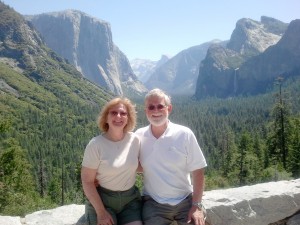The Servant established justice. Jesus the Messiah acts in a big theater of operations: “on earth”. For nearly 1800 years, it looked like Jesus was only at work in western Asia, Europe, North America, and northern Africa for a time. Then suddenly, he started to shine his light in other places for about the next 200 years. Now, all around the world people from every tribe and language are coming to the Lord and Savior, Jesus. We live in great days of the progress of the mission. We need to abandon our local, provincial interests and praise the Lord for what he is doing in the world today. Certainly, the darkness is dark, but the true Light is shining and more and more people have received the light of the glory of God in the face of Jesus (2 Corinthians 4:6). We should shake off the gloom and get involved in Jesus’ mission, as the early apostles did (Acts 5:41-42; 13:46-52).
Christ told Peter that he would build his church (Mt 16:18). This prophecy expresses that same certainty. His justice will be brought to earth, because God’s appointed goal is to make a new heaven and a new earth (Revelation 21:1-2; 22:1-5) to share with his new creation people.
The Servant of the Lord established hope. The idea of the Hebrew word is “to wait” or “to hope”. The word can mean either. Here I think the second is better because of Matthew’s use of hope in his use of the Septuagint (LXX) translation of Isaiah (Matthew 12:21). The islands, the most remote places of the earth, will have hope or confident expectation. The eternal inheritance his people share in him provides them with a certain basis to expect much more than they could have in this world that is destined to pass away. Let us live as people with an eternal destiny ought to live. To be specific, this means that we will need to invest time in setting our thoughts on things above. Reread and meditate on Colossians 3:1-4. This requires us to meditate on what we have in Christ, including what we will surely have in heaven. We must strengthen your heart with these things!
The basis of this is the Servant’s instruction (torah). One of the great truths of the Gospels is that Jesus is the great Prophet or Teacher. His instruction becomes a crucial part of our hope, which restructures our world and life view. We now are to think of ourselves, our lives, and our share eternity with the living God in conformity with Christ’s instruction. Since he is the fulfillment of the old torah, his new torah, given through him and his apostles and prophets by the Holy Spirit becomes our torah. He is God’s final revelation (Hebrews 1:1-2); he is the Word or Message. His instruction about God’s saving reign becomes the basis for our hope. He has revealed the Father (John 17:6-8). Believing his message is the way to life (John 5:24). To believe his instruction means the difference between eternal wisdom and eternal foolishness (Matthew 7:24-27). Don’t be foolish! Let’s build our lives on Christ and his instruction!
Grace and peace, David







 wanted us to know, and the way many of us learn is by repetition.
wanted us to know, and the way many of us learn is by repetition.